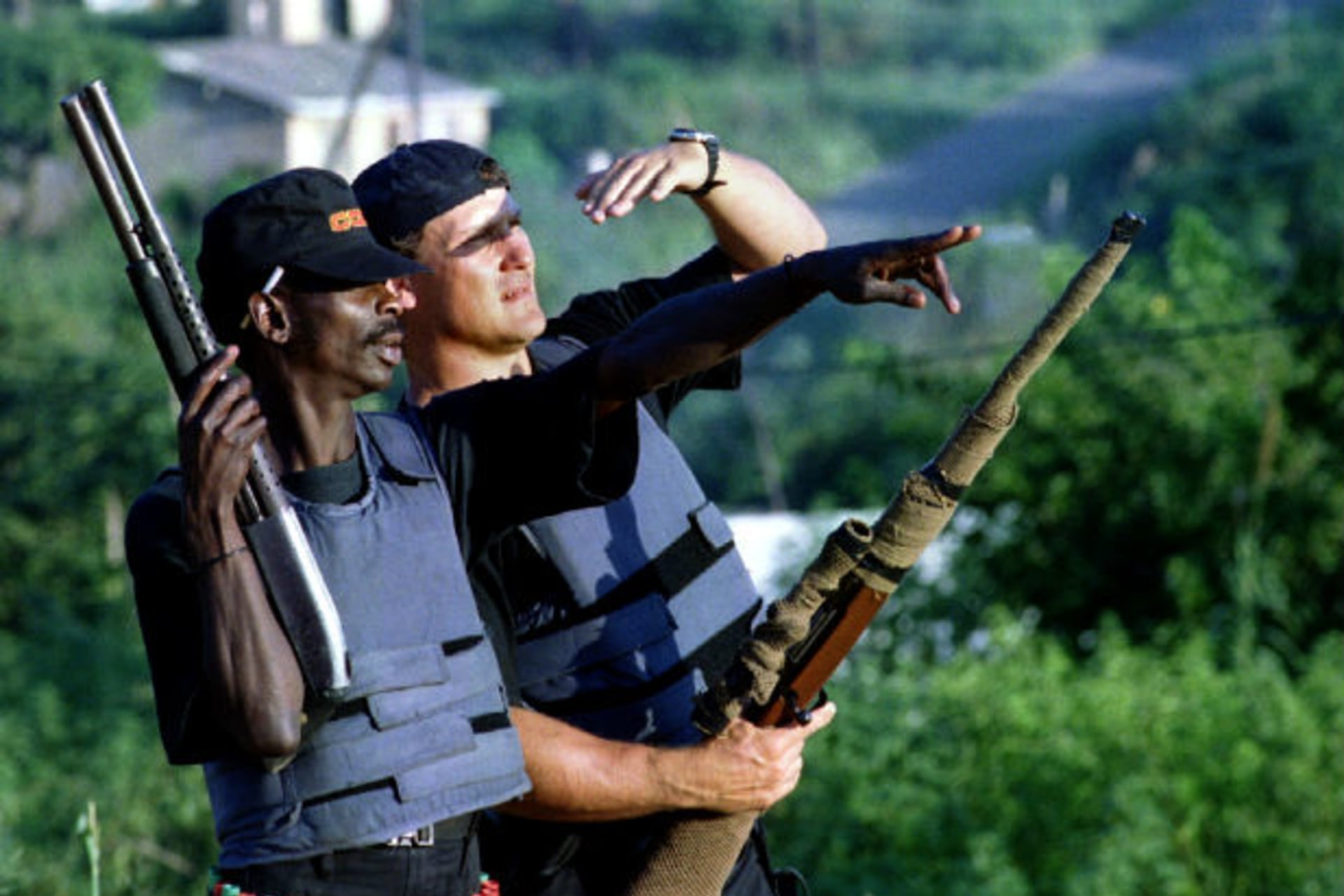Mercenaries in Nigeria, Part II

By experts and staff
- Published
By
- John CampbellRalph Bunche Senior Fellow for Africa Policy Studies
With the detailed March 13 New York Times story on the presence of mercenaries in Nigeria, further comment is required.
The image of white mercenaries atop armed personnel carriers and flying helicopter sorties against Africans is a throw-back to apartheid days. During those days, mercenaries were used to fight against the liberation movements in southern Africa. As during apartheid times, there is more than a whiff of the clandestine about the mercenary activity in Nigeria’s Borno state. According to the Times, the mercenaries are housed in a remote corner of the Maiduguri airport, mostly operate at night, clearing Boko Haram operatives from a specific area, which is then occupied by Nigerian troops after daybreak. Nigerian military commanders have insisted that the foreigners are technical advisors, and at a briefing in Washington, D.C. earlier in the week, two senior Nigerian officials made no reference to the mercenaries’ presence.
The apartheid associations do not seem to be lost on the Pretoria government, which has reiterated that mercenary activity by any South African is illegal, and that participants will be arrested if they return.
It also is credible that the mercenaries will be successful in the short-term in Borno state, as they have been before. However, it is unlikely that they will destroy Boko Haram, which will melt into the countryside and the slums of cities. As in 2009 when Mohammed Yussuf and hundreds were killed by the security services, Boko Haram will regroup and come back to fight another day. This is comparable to Mali in 2012, when foreign mercenaries assisted in suppressing the Tuareg rebellion, only to be faced by more warfare and rebellions shortly after having claimed success. A short-term victory does not guarantee long-term resolve. But, with respect to the national elections of March 28, the Abuja government will be able to say that voting is now possible in a large number of territories once occupied by Boko Haram.
For many years after independence, and especially after the conclusion of the 1967-70 civil war, the Nigerian government was strongly nationalistic. It vigorously asserted its sovereignty, and its position as a growing hegemonic power in West Africa. Now, in addition to mercenaries ostensibly driving the government efforts against Boko Haram, Chadian, Nigerien, and even Cameroonian troops are active on Nigerian territory. As recently as the administration of Umaru Yar’Adua, this would have been unimaginable. The Times quotes the distinguished American scholar Paul Lubeck as saying that this episode marks “the destitution of Nigerian nationalism.” Indeed, it does.
That it is happening now is a sign of the collapse of Nigeria’s military–once the guarantor of the Nigerian state, and demonstrates the impotence of the Abuja government in the face of the Boko Haram threat. Such desperate times for Abuja require the desperate measures of bringing in mercenaries and allowing foreign troops to operate on Nigerian soil.